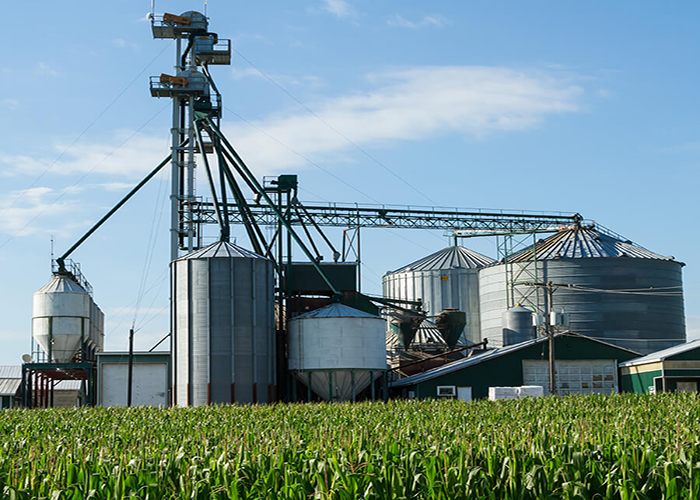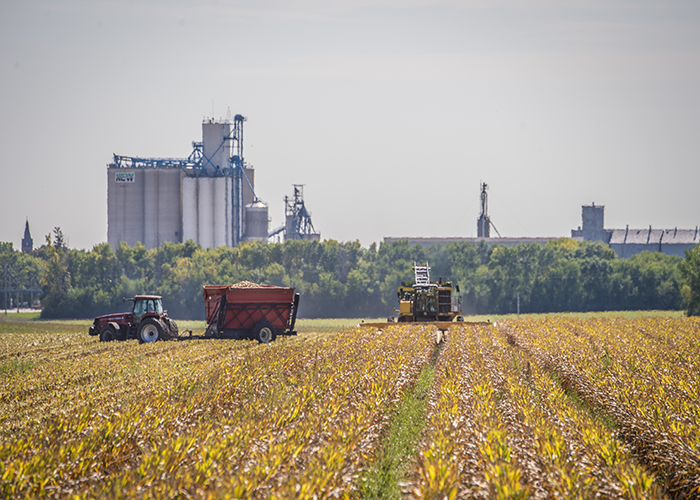Water and Wastewater Treatment Solutions for Agriculture Farm Industries: STP, ETP, WTP, RO, WWTP, and Beyond

Agriculture remains the backbone of India's economy, with Maharashtra being a key player due to its diverse agro-climatic conditions. The state houses various farming activities, from sugarcane and cotton to fruits and vegetables, making it an agricultural powerhouse. Over the years, farms have evolved into integrated agri-industries, combining processing units and packaging centers within the same ecosystem.
These integrated farms are focused on crop cultivation, dairy, poultry, and agro-based manufacturing, contributing significantly to rural employment and GDP. However, with this growth comes a parallel rise in the need for efficient water use and environmental management, especially in wastewater treatment.
Understanding the vital role of water in every operation within agriculture and farm-based industries
Water is fundamental to agricultural operations and is used in irrigation, livestock maintenance, cleaning produce, and agro-processing. A farm can consume thousands of liters daily, especially water-intensive crops like sugarcane and paddy. Similarly, dairy and poultry farms require water for hygiene, animal consumption, and cooling systems.
Beyond direct agricultural use, water plays a role in the value chain—washing, processing, and transporting food items. Hence, water quality and availability are critical. Inefficient use or lack of treatment leads to resource depletion and pollution, threatening sustainability and compliance.
Key farming and processing operations that result in the generation of contaminated wastewater
Wastewater in agricultural industries originates from multiple sources—livestock sheds, equipment washing, agrochemical runoff, and produce processing units. Cleaning dairy floors or washing fruits and vegetables contributes to large volumes of water with organic and chemical pollutants.
"Water sustains agriculture, but it must be used wisely. In farm industries, every drop counts—from irrigation to cleaning and processing. Treating and reusing water isn't just good practice; it's essential for long-term sustainability, food safety, and environmental balance in a rapidly growing agricultural landscape."
In agro-industrial setups, wastewater can also stem from food processing, fermentation, and effluent discharges from pesticide mixing or fertilizers. These discharges, if untreated, can contaminate soil and local water bodies, impacting ecosystems and human health.
Identifying the different forms of contaminated water from various agricultural and farm-related processes
Agricultural farms generate several wastewater types—organic-rich effluent from dairy, chemical-laden runoff from pesticides, and slurry from livestock. There's also greywater from equipment cleaning, contaminated with oil, dirt, and animal waste.
Each type presents unique challenges for treatment. For instance, high Biological Oxygen Demand (BOD) levels in dairy wastewater require biological treatment, while chemical-laden water from fields may need filtration and neutralization. Proper categorization is essential for selecting appropriate treatment technologies.
Understanding methods and processes used to clean and recycle agricultural and farm industry wastewater
Treating farm wastewater involves physical, biological, and chemical processes. Sewage Treatment Plants (STP), Effluent Treatment Plants (ETP), and Wastewater Treatment Plants (WWTP) are deployed based on wastewater type and volume.
Technologies such as sedimentation tanks, anaerobic digesters, and activated sludge processes help remove solids and organic matter. For chemical contaminants, neutralization, Reverse Osmosis (RO), or membrane filtration is applied. Treated water can then be safely reused or discharged.
How agriculture farm industries adopt modern systems to recycle and reuse their wastewater efficiently
Farm industries are embracing technologies like RO systems, Moving Bed Biofilm Reactors (MBBR), and UV disinfection to meet stringent water reuse norms. These innovations help reduce pollution and lower dependence on freshwater sources.
Reusing treated water for irrigation, washing equipment, and even cooling improves sustainability. Smart sensors and automation are also integrated into systems for real-time monitoring, ensuring optimal plant performance and regulatory compliance.
Delivering customized water and wastewater treatment solutions for agriculture and allied farm-based industries
We offer end-to-end solutions tailored for agriculture farm industries—from consulting and plant design to installation and maintenance. Whether an STP for a dairy farm or an ETP for a food processing unit, our systems are built for reliability and efficiency.
Our team specializes in delivering plug-and-play solutions, minimizing downtime, and maximizing reuse potential. We also offer AMC, operator training, and remote monitoring services to ensure plants run at peak efficiency all year round.
Conclusion: Water Treatment in Agriculture Farm Industries

Conclusion: Water Treatment in Agriculture Farm Industries
Agriculture farm industries depend heavily on water for daily operations, making its responsible use and treatment essential. The sector generates diverse wastewater types—from organic to chemical—requiring specialized treatment through STP, ETP, WWTP, or RO systems.
With growing environmental concerns and regulatory mandates, these industries rapidly adopt advanced water treatment technologies. Our expertise lies in delivering customized, efficient, sustainable water management solutions. The future of farming is water-resilient—and it starts with the right treatment strategy.

